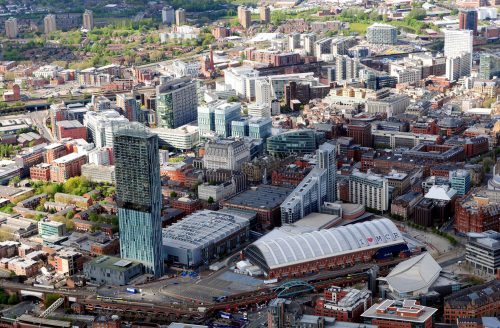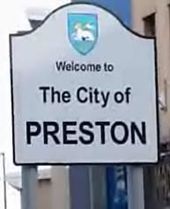Cities in North West among fastest improving for second year running

Improving skills levels and new business formation have been the key long-term drivers of city growth since the financial crisis, according to the latest Demos-PwC Good Growth for Cities 2018 index that ranks cities on a combination of economic performance and quality of life.
The latest index analyses a decade of economic and social data to determine what long-term factors drive good growth.
And North West cities, including Liverpool, Manchester and Preston, feature among some of the top improvers over the past decade.
PwC analysis shows that the average city in the index has improved its good growth score significantly over 10 years from 2005-7 to 2015-17, and has now more than recovered from the recession and downturn triggered by the global financial crisis.
Improving average skills levels for the UK’s youngest workers and driving new business formation have been the strongest drivers of good growth over the past decade, while unemployment levels have fallen back to around pre-crisis levels.
However, this long-term retrospective analysis also highlights areas where there have been structural deteriorations for cities across the UK, particularly around reduced housing affordability and owner occupation rates and steep increases in average commuting times.
Published today, (November 1), the seventh annual Good Growth for Cities 2018 index sets out to show that there’s more to life, work and general well-being than just measuring GDP.
The index measures the performance of 42 of the UK’s largest cities, England’s Local Enterprise Partnerships (LEPs) and the nine Combined Authorities, against a basket of 10 indicators based on the views of the public as to what is key to economic success and wellbeing.
These include employment, health, income and skills – the most important factors, as judged by the public – while housing affordability, commuting times, environmental factors and income inequality are also included, as is the number of new business starts.
This year’s index sees Preston topping the most improved city rankings since last year’s index, with other big improvers including Middlesbrough & Stockton, Hull and Wakefield & Castleford, which had previously been low performers in the index.
Liverpool was ranked eighth top improver, and Manchester 10th. However, much of this new cohort of improvers reflects the impact of substantial falls in unemployment rates reaching out across all parts of the UK.
The research shows that English Combined Authorities have made improvements in each area compared with last year’s report.
Greater Manchester has experienced the largest improvement among the Combined Authorities as a result of an increase in the number of new business start-ups per head.
However, the West of England extends its lead at the top of the index rankings for combined authorities, driven by increasing skills among both the 16-24 and 25-64 year old populations.
All LEP’s within the North West also scored above average for the jobs variable, with each also measuring at, or above, average for new businesses, work life balance, house price to earnings, skills and environment.
Following the financial crisis, there has been a clear trend of falling unemployment across the North West.
This has continued to improve since the 2017 index, with three of the five cities seeing their largest increase in jobs variable.
Since 2014-16 the Northern Powerhouse has experienced a substantial increase in the jobs component of the index as a result of falling unemployment. There has also been a significant increase in the number of new businesses per head.
John Hawksworth, chief economist at PwC, said: “Almost all UK cities have seen improved good growth scores in recent years, driven primarily by cyclical falls in unemployment rates that have now rippled out from the South East of England to regions like the North East that were previously lagging behind.
“But the more interesting perspective is provided when we look at the whole decade from 2005-7 to 2015-17, which covers a whole economic cycle and therefore allows us to identify deeper structural trends.
“The good news here is that successive cohorts of young workers have higher average skill levels, which is pushing up index scores together with rising rates of new business creation in most cities.
“But the flip side of this success has been worsening housing affordability and consequent falls in home ownership rates precisely for those young people who have invested in acquiring new skills.
“As they are pushed further from city centres to afford a place to buy, or even rent, average commuting times have also risen.
“Having largely recovered from the financial crisis, addressing the housing and infrastructure supply constraints that drive these negative trends will be key challenges for the next decade for both central and local government, looking beyond the immediate issues around Brexit.”









